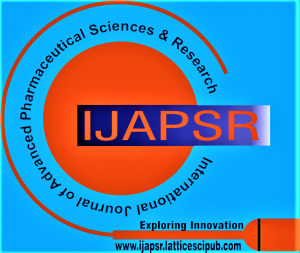![]()
Analysis of Medicinal Plants and Traditional Knowledge Development in Ethiopia
Bekele Kindie
Bekele Kindie, Department of Plant Genetics, Ethiopia Biodiversity Institute Harar Biodiversity, Addis Ababa, Amhara, Ethiopia.
Manuscript received on 10 November 2023 | Revised Manuscript received on 03 December 2023 | Manuscript Accepted on 15 December 2023 | Manuscript published on 30 December 2023 | PP: 26-31 | Volume-4 Issue-1, December 2023 | Retrieval Number: 100.1/ijapsr.A4033124123 | DOI: 10.54105/ijapsr.A4033.124123
Open Access | Editorial and Publishing Policies | Cite | Zenodo | Indexing and Abstracting
© The Authors. Published by Lattice Science Publication (LSP). This is an open-access article under the CC-BY-NC-ND license (http://creativecommons.org/licenses/by-nc-nd/4.0/)
Abstract: The review conducted in Ethiopia has revealed a rich diversity of medicinal plant species and traditional knowledge that play a significant role in the management of various human and livestock diseases. Medicinal plants are widely used by communities, particularly rural communities, to treat various human and livestock ailments. Medicinal plants are also crucial for the development of modern medicine. Traditional knowledge refers to the collective knowledge accumulated by communities within their respective cultures, beliefs, and experiences. Different parts of medicinal plants are used in traditional remedies to treat humans and livestock. Traditional knowledge and medicinal plants are critically threatened and in danger of extinction due to overgrazing, charcoal production, deforestation, urbanisation, agricultural expansion, and firewood collection. Traditional medicinal plants and associated knowledge can be conserved using either in situ or ex-situ conservation methods. Therefore, create awareness among the local people about the use of medicinal plants and the associated knowledge to ensure sustainable harvesting of medicinal plants. Conducting ethnobotanical research and documenting medicinal plants, as well as indigenous knowledge, is essential for conservation.
Keywords: Ethnobotany, Indigenous Knowledge, Threats, Plants, Ethiopia
Scope of the Article: Pharmaceutical Analysis
